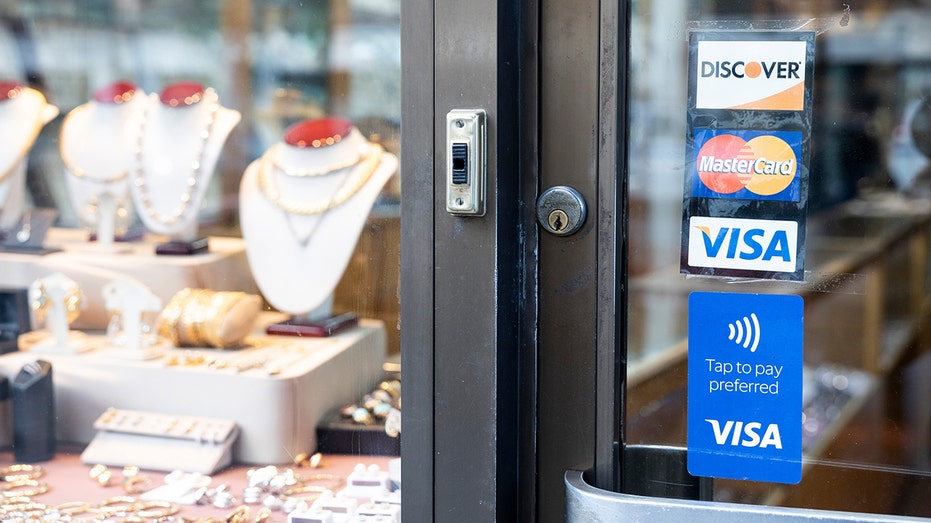See Clicking on FoxBusiness.com.
The Department of Justice (DOJ) made a filing on Tuesday Case against visaThe company is accused of maintaining an illegal monopoly in the US debit card market.
According to the DOJ’s complaint, more than 60% Debit Card Transactions Visa’s debit network operates in the U.S., which allows the company to collect more than $7 billion in fees each year for processing those transactions.
It also alleges that Visa illegally maintains its monopoly power by protecting itself from competition. For example, the DOJ found that Visa uses exclusion agreements with merchants and banks that use its debit card services, allowing it to lock in debit card transaction volume while it “insulates itself from competition and stifles smaller, lower-cost competitors.”
“We allege that Visa has unlawfully amassed the power to extract fees that exceed what it could charge in a competitive market,” Attorney General Merrick Garland said in a statement. “Merchants and banks pass those costs on to consumers by raising prices or reducing quality or service. As a result, Visa’s illegal behavior affects not just the price of one product — but the price of almost everything.”
Credit card discount rates hit worst level since 2012, new FED study finds
The Justice Department filed a lawsuit accusing Visa of maintaining a monopoly in the debit card market. (Photographer: Andrew Harrer/Bloomberg via Getty Images/Getty Images)
The DOJ’s lawsuit also said Visa “incentivizes potential competitors to enter the market as partners rather than competitors by offering generous cash incentives and threatening punitive surcharges.”
| ticker | Security | Lastly | change | conversion % |
|---|---|---|---|---|
| V | VISA INC. | 288.63 | +3.86 |
+1.36% |
It alleges that Visa engaged in a “deliberate and reinforcing conduct Stopped the match and prevent competitors from gaining the scale, share and data needed to compete for customers’ business.” The DOJ also noted that it uses its size to leverage both merchants and consumers to create what it refers to as an “enormous moat” around its business.
Fox Business reached out to Visa about the lawsuit.

Attorney General Merrick Garland said Visa used its debit market influence to extract excessive fees from merchants while stifling competition. ((Photo by Chip Somodevilla/Getty Images) / Getty Images)
Visa, MasterCard could handle larger swipe payment settlement than $30 billion: judge
Visa and rival MasterCard have faced legal scrutiny in recent months. This summer, a federal judge rejected the $30 billion settlement A case where card issuers charge merchants to process their transactions are swipe fees, also known as interchange fees.
The solution would have reduced and capped swipe fees, resulting in an annual savings of $6 billion for merchants.

Visa and MasterCard were recently denied a $30 billion settlement in a lawsuit over excessive swipe fees for merchants, with a judge saying they could be awarded a larger verdict. (Photo: Angus Mordant/Bloomberg, via Getty Images/Getty Images)
Get Fox Business by clicking here
The judge called that amount “insignificant” compared to the roughly $100 billion they paid Visa and MasterCard in 2023, and said the “evidence strongly suggests” that Visa and MasterCard “could withstand a substantially larger judgment.”
Visa’s stock price fell more than 4.3% on Tuesday as the DOJ prepares to file its lawsuit against the financial services giant.